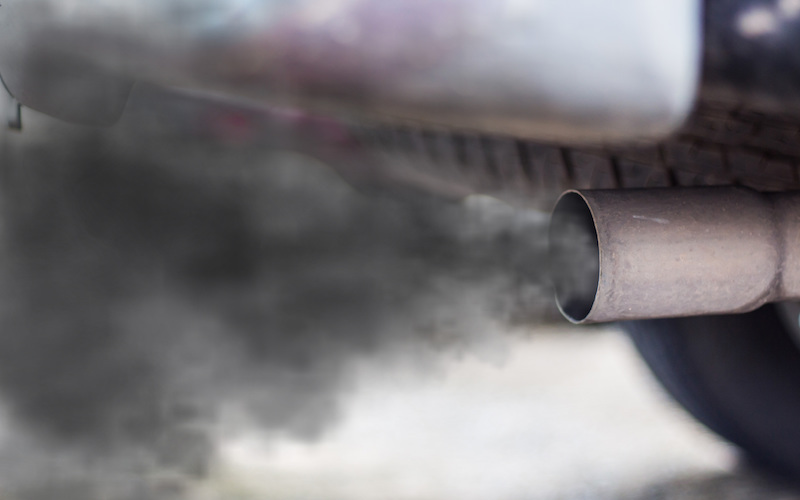
The Heavy-Duty Omnibus rule would require new truck engines sold in Massachusetts to be cleaner. Photo by Shutterstock
October 18, 2024 (Boston, MA) – The Massachusetts Department of Environmental Protection (MassDEP) delayed implementing a rule that will curb dirty tailpipe emissions from polluting trucks. The Heavy-Duty Omnibus (HDO) rule, now delayed a year until 2026, requires new combustion truck engines sold in Massachusetts to be significantly cleaner, but has faced opposition from engine manufacturers.
“This is another disappointing failure of climate leadership and policy transparency by the Healey Administration, which has postponed a major climate and clean air rule and evaded public scrutiny by cynically declaring an ‘emergency’ based solely on closed-door meetings with local officials hearing unfounded claims from engine vendors,” said Conservation Law Foundation President Brad Campbell. “The actual emergency is the administration’s seeming indifference to public health and public process for Massachusetts residents breathing the dirtiest air.”
Massachusetts adopted HDO in 2021 and it requires new engines to emit 75 percent less nitrogen oxide pollution and 50 percent less particulate matter pollution in its first phase, with increasing stringency over time. The rule was set to be implemented starting with model year 2025.
Transportation is the largest source of climate-warming emissions in New England and the entire country, and this delay will jeopardize Massachusetts’ efforts to reach its climate goals.
Vehicles spew pollution that warms our climate and dirties the air.
Heavy-duty vehicles often rely on the dirtiest of fuels: among them is deadly diesel. Diesel has a long and sordid history of polluting our air and climate. This fuel is linked to asthma and other respiratory illnesses. It also aggravates preexisting conditions like heart and lung disease. Worse, the public health impacts of diesel disproportionately affect communities already overburdened by environmental hazards, such as communities of color or low socioeconomic status.
“Arise for Social Justice is appalled at the decision to delay the heavy truck ruling,” said Rusty Polsgrove, Associate Director of Arise for Social Justice. “Each day we delay the transition to clean technology is a day that Black, Brown, and low-income communities suffer an inequitable public health burden. It is imperative that the Commonwealth prioritize the health of its residents over the profit of its corporations.”
Experts are available for further comment.
###
